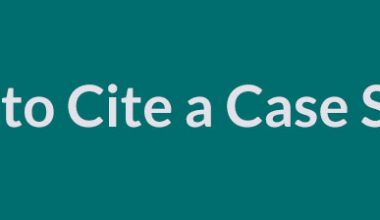University interview tips, reviewing questions, and responses for international students is crucial while putting together your application to study abroad. You must understand how to prepare for a college interview in advance because not all schools have interviews, but if your preferred school does, you must be ready.
We have compiled a list of typical college admissions interview questions for overseas applicants in light of this. For your preparation, we’ve also included some advice and sample answers.
With the long list of strategies we have compiled for you in this article, you’ll feel more in control and be more likely to perform well and be accepted. So, glide through our comprehensive list of the university interview tips.
Table of Contents
- Best University Interviews Tips in 2024 for International Students
- Private Questions
- University Interview Tips
- Which University Courses Require Interview Tips?
- How to Get Ready for a University Interview Tips
- Relax, it Will Help You in Interviews
- Various University Interview Tips Format
- Interview Tips in 2024 for Freshers
- Frequently Asked Question s
- Conclusion
- References
- Recommendations
Best University Interviews Tips in 2024 for International Students
Consider the interview as a discussion with a prospective mentor and colleague. To make sure that you are a good fit and that you can collaborate effectively in the future, you would want them to know who you really are.
The best course of action is also to be sincere and truthful in your responses. . It is the greatest method to prevent contradictions in your responses and make sure that both you and the interviewer have a positive experience.
Therefore, let’s go over a few things you need to keep in mind when preparing for your interview before we discuss the kinds of questions you should anticipate as an international student.
- Be sincere
- Be succinct
- Research
- Rehearse
- Prepare
This could help: How Do I Know if My Child is Suitable For Grammar School?
Private Questions
Typically, an interview will begin with a series of personal questions such “Tell me about yourself.” The admissions committee does this to ease you into the conversation and break the ice. They want to learn details about you that might not have been included in your application or extra application essays.
You can go into greater detail in these introductory questions on themes that you may have already covered in other parts of your application, such as your common app essay.
When responding to this kind of inquiry, you should make every effort to develop a story. The interviewer wants to know more about the person behind the numbers and extracurriculars, so this is your chance to tell them more about that person.
Check out the example questions and responses below to put that into perspective:
Tell us a Little Bit About Yourself
Here’s a typical example of what your response should look like:
I grew up traveling both domestically and abroad because my parents are missionaries. I probably got my passion of history and travel from their. My parents frequently took my siblings and I to museums and talks.
I spent the most of my teenage years in Italy, where I developed a deep passion for the country’s rich history, architecture, and culture. At that point, I understood that I wanted to teach history so I could spread my passion of the subject to others.
University Interview Tips
Although not everyone enjoys interviews, you will succeed with some preparation. Be reminded that your interviewers will be on the lookout for motivated students who have a lot to give, someone who can work independently and think critically, someone who will succeed while balancing a diversified academic life with extracurricular activities.
Think Ahead
In order to prepare ahead of time and ensure that you can attend, it is a good idea to find out when and how the interview will be conducted. If it’s in person, look into transportation and lodging; if it’s online, confirm that you have access to a laptop and a quiet area.
Be prepared to answer questions regarding your application as well as inquiries about the course and the university/college.
They might ask to hear your opinions, so show them you are knowledgeable about the newest developments in your field and stay current with the news.
Discuss why you selected that course and what you find most enjoyable about your present studies in practice interviews with a teacher or adviser.
Rest well! More related article: Can You Take A-Levels Privately? A Complete Guide
The Interview
While a suit may not be necessary, stylish pants or a skirt and a shirt or blouse will convey that you are treating the situation seriously.
Give yourself plenty of time to get there; keep their phone number close at hand so you can call and let them know if you’re running late.
Maintain a calm and awake state, sit up straight, and make eye contact. Don’t slouch, yawn, or fold your arms.
If you’re unsure about something, just ask them to repeat it or explain it, venture a guess, or tie it to something you already know.
Be prepared for the unexpected because they can administer a surprise test to see how you handle pressure. Just try your best to maintain a confident outlook.
Asking them questions also shows interest and gives you the opportunity to learn things you didn’t know.
Afterwards
Make notes; if you have other interviews coming ahead, it may be helpful to prepare by outlining the questions and responses you have already received.
Think back on your performance, identify what went well, and come up with fresh solutions for any areas you feel need improvement.
After we hear back from the university or college, we’ll let you know if they’re making you an offer. In the meantime, relax and wait.
Which University Courses Require Interview Tips?
You may be required to participate in an interview as part of your university application for some courses.
Interviews are frequently required for candidates in the fields of medicine, dentistry, nursing, education, music, and art & design.
Social science applications and STEM (Science, Technology, Engineering, and Mathematics) courses are less likely to require an interview. For courses that aren’t generally interviewed for, certain colleges will conduct interviews. If many people are interested in the course, this might occur.
No matter the course, Oxford and Cambridge won’t give applicants a spot without an interview. Both Imperial College London and University College London have the potential to interview candidates.
Read related article:
How to Get Ready for a University Interview Tips
Excellent applications will usually result in an invitation to an interview, but keep in mind that you’ll be up against other deserving applicants. Therefore, careful planning is essential. You can improve your chances of success by using the following advice for university interviews.
Practice Responses to Typical Inquiries
The majority of institutions will be interested in your responses to the questions “Why do you want to study the subject? ” and “Why do you want to attend this university? “.
Have polished, rehearsed answers for these questions, but strike a balance so that you sound genuine and unscripted during the interview. You may want to mention something from your personal statement at this point.
Read Over Your Resume Once More
Make sure you are comfortable with what you wrote because you may be questioned about some of the details you mentioned. Ask your school or college to examine your UCAS reference as well; some inquiries may relate to your teacher or head of sixth-form reference.
Checkout this post: What Time Do Primary Schools Start and Finish in the UK?
Be Certain You Can Attend
If you don’t come, it’s quite doubtful that you’ll be offered a spot. Contact the university to reschedule if you are unable to make the date for any reason. Since there are only a limited number of interview slots available, it is impolite to cancel or show up without notice (unless you have an emergency).
Go With Any Additional Documentation You May Need
If you’re applying for a course in the creative arts, you could be requested to bring a portfolio of your work. Since this job may take up a significant portion of your interview, check this well in advance.
Be on Time
Arrive at least 20 minutes before your scheduled interview time if it is on campus. By doing so, you’ll be able to get a feel for the area and reduce any unnecessary stress. Make sure you’re prepared in advance for a virtual interview and that the Wi-Fi connection is robust.
Be Smartly Dressed for Comfort
Making a good first impression depends on how well-kept you appear. Be comfy though, since it will make you feel more at ease. Some institutions require you to dress in business-casual or smart apparel.
Get ready to Drop Your Questions
You could have the opportunity to pose some inquiries of your own. A prepared appearance will demonstrate your interest in the course and the university. Wherever you can, be innovative, and pose questions to the interviewer to demonstrate your interest in the topic.
You might enquire about:
- A particular module and the subjects it covers
- What you’ll learn each year and how you’ll be evaluated
- What kinds of positions do graduates take?
Relax, it Will Help You in Interviews
You’ve earned this interview based on your qualifications, so as long as you come prepared and give sincere responses, there’s no need to be nervous. Although jitters are a positive sign, remember to take a few calm breaths before you start.
You should be proud that admissions teams have contacted you to set up an interview so they can learn more about you.
See more: Why is Sixth Form Actually Called Sixth Form?
Various University Interview Tips Format
Find out the specifics of any interview you’ve been asked to attend before you go because no two colleges will conduct interviews in the same way.
Make sure you study the information on the interview format you should receive before the interview so that you are prepared. The website of the university may potentially provide helpful resources.
Interviews that Typically Involve a Discussion
The course instructor for your chosen subject will converse with you throughout these interviews. Discussing your motivations for enrolling in the course and your qualifications as a candidate will be requested of you.
A pertinent duty can be given to you to do. There may be casual and group interviewing situations. If you’re uncertain, find out in advance what the format is. The majority of colleges offer advance information.
Exams at Oxbridge
The universities of Cambridge and Oxford are known for their challenging interview processes. These interviews aren’t just meant to deceive you; they’re also meant to gauge how you handle unfamiliar circumstances. Expect the unexpected as a result.
MMI Stands for Multiple-Mini Interview Tips
MMIs are frequently utilized for applicants who want to study medicine and other related fields. They are intended to determine whether or not you possess the abilities and qualities necessary to succeed in a course. You’ll be required to finish a number of “stations” that assess various qualities.
See Also: How to get an A in A-Level Chemistry in 2024
Interview Tips in 2024 for Freshers
It can be tough to prepare for interviews, especially if you are a newbie. To ace your interview, there are a few things you should remember. With these 5 fantastic interview tips for freshers, you can stay one step ahead of the competition!
University Interview Tips for Freshers
Before the actual interview, practicing with friends and family might help you better prepare. Here is a few University interview tips that will help you prepare better:
- What do you consider to be your greatest assets?
- What do you consider to be your greatest weaknesses?
- Could you tell us about your interests and hobbies?
- What do you expect your life to look like in five and ten years?
- What made you decide to join this company?
- Why should we employ you?
- What can you do to help the company?
- What do you know about the company?
- How much money do you expect to get from the business each month?
Frequently Asked Questions
They might ask to hear your opinions, so show them you are knowledgeable about the newest developments in your field and stay current with the news. Discuss why you selected that course and what you find most enjoyable about your present studies in practice interviews with a teacher or adviser. Rest well!
Describe your post-graduation goals, including your desire to continue your study, contribute to research, or have a significant impact on your industry. Talk about how the opportunities and resources provided by the university can help you reach those objectives
A modest dress or skirt is always appropriate, and a nice top is just as appropriate as a shirt. Just make sure the hem stays respectably long when you’re sitting down and doesn’t extend higher than just above the knee. Avoid wearing low-cut tops, jeans, and leggings without a dress or skirt over them.
Describe the specific educational, research, and other academic possibilities the college offers that you are interested in. Discuss how these chances assist your future ambitions to further develop your notion.
Conclusion
You may not always get a University Interview Tips, because not all application process involves a college admissions interview, but if one does, you must be prepared to give your best performance. Preparation is essential for this interview as well as for any other.
To increase your chances of success as an international student, research typical interview questions, follow the advice we’ve provided above, practice, and if at all feasible, receive professional feedback.
References
- Bemoacademicconsulting.com – 30 International Student Interview Questions and Answers
- UCAS.com – Undergraduate Interview Invitations
- ischoolconnect.com – 5 Essential interview tips for freshers to excel in Job Interviews






